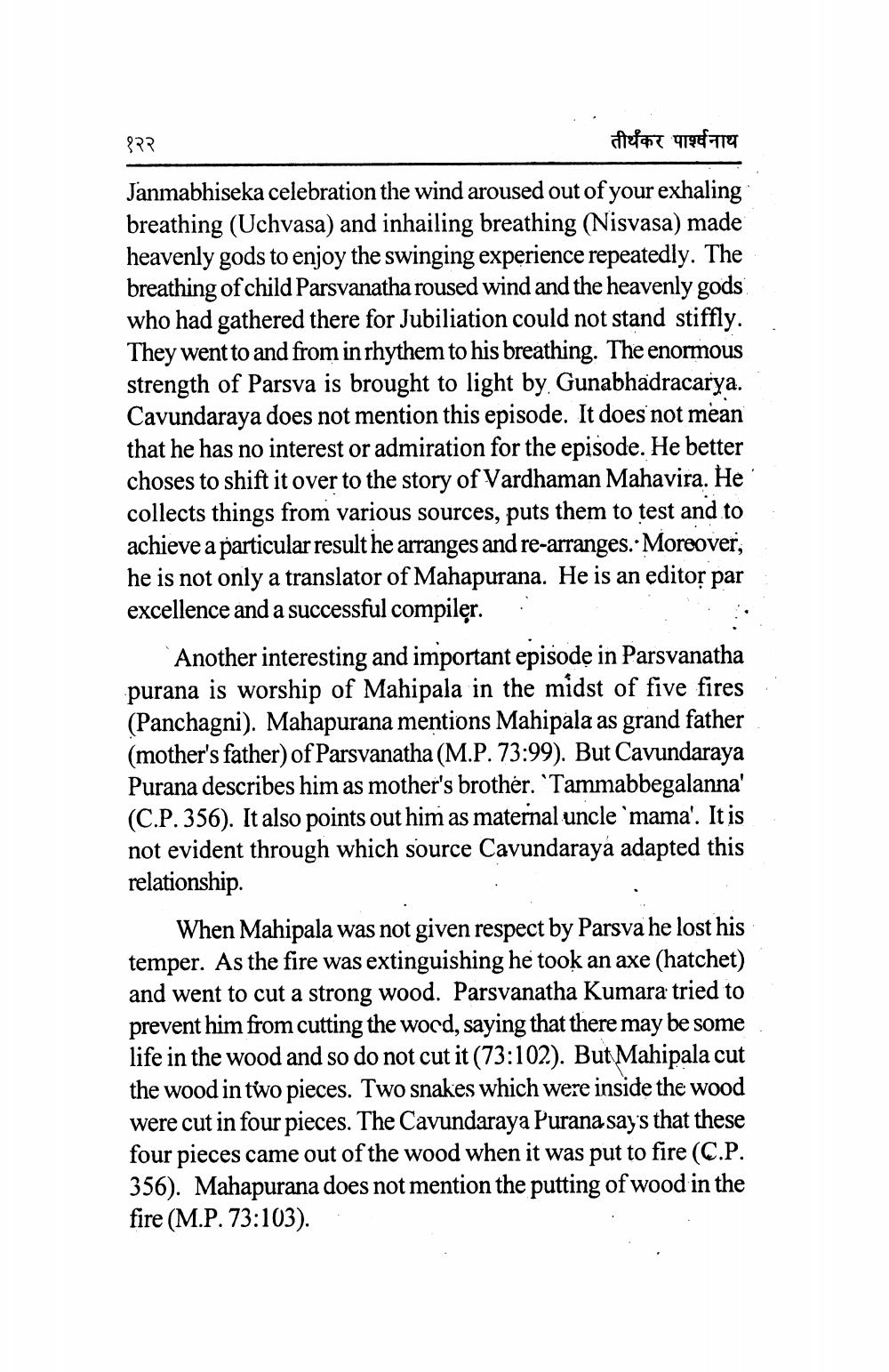________________
१२२
तीर्थंकर पार्श्वनाथ
Janmabhiseka celebration the wind aroused out of your exhaling breathing (Uchvasa) and inhailing breathing (Nisvasa) made heavenly gods to enjoy the swinging experience repeatedly. The breathing of child Parsvanatha roused wind and the heavenly gods who had gathered there for Jubiliation could not stand stiffly. They went to and from in rhythem to his breathing. The enormous strength of Parsva is brought to light by. Gunabhadracarya. Cavundaraya does not mention this episode. It does not mean that he has no interest or admiration for the episode. He better choses to shift it over to the story of Vardhaman Mahavira. He collects things from various sources, puts them to test and to achieve a particular result he arranges and re-arranges. Moreover, he is not only a translator of Mahapurana. He is an editos par excellence and a successful compiler. .
Another interesting and important episode in Parsvanatha purana is worship of Mahipala in the midst of five fires (Panchagni). Mahapurana mentions Mahipala as grand father (mother's father) of Parsvanatha (M.P. 73:99). But Cavundaraya Purana describes him as mother's brother. 'Tammabbegalanna' (C.P. 356). It also points out him as maternal uncle 'mama'. It is not evident through which source Cavundaraya adapted this relationship
When Mahipala was not given respect by Parsva he lost his temper. As the fire was extinguishing he took an axe (hatchet) and went to cut a strong wood. Parsvanatha Kumara tried to prevent him from cutting the word, saying that there may be some life in the wood and so do not cut it (73:102). But Mahipala cut the wood in two pieces. Two snakes which were inside the wood were cut in four pieces. The Cavundaraya Purana says that these four pieces came out of the wood when it was put to fire (C.P. 356). Mahapurana does not mention the putting of wood in the fire (M.P. 73:103).




